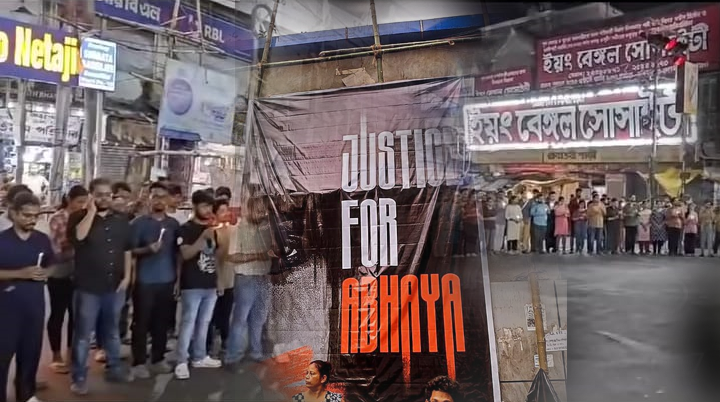
Despite Tough Laws, Rising Rape Cases in India Highlight Glaring Gaps in Women's Safety
In a major development, the Supreme Court has taken suo moto cognisance of the brutal rape and murder of the young doctor at R. G. Kar Hospital in Kolkata, marking a significant development. The Court's decision to interfere highlights the persistent crisis in women's safety in India, where, despite strict legislation, the threat to women remains frighteningly high. The Supreme court bench headed by Chief Justice of India DY Chandrachud will include Justices JB Pardiwala and Manoj Misra, underscoring the gravity of the situation and the critical need to rectify systemic failings.
The Central Bureau of Investigation (CBI) is currently investigating the tragedy, which has sent shockwaves across the country. The young doctor's diary, discovered at the crime scene, has become a focal point of the inquiry, possibly containing important evidence. According to insiders, the notebook lists the names of over 30 people, including students, professors, and interns, some of whom the victim accused of harassment. Although the victim's family has kept quiet about the diary's contents, citing the current inquiry, they have expressed serious worries about the hospital environment.
This story is not a unique incident but rather reflects the larger issue of women's safety in India. Despite the existence of laws designed to protect women, the statistics paint a bleak picture: the number of reported rapes remains enormous. According to the Union Home Ministry, there were 36,739 documented cases of rape in 2014, which dropped somewhat to 34,094 occurrences in 2015. However, the number of cases increased again in 2016, reaching 38,947. demonstrating that this problem is not going away. In successive years, the Figures fluctuated but remained alarmingly high: 32,599 instances in 2017. 33,356 in 2018, 32,033 in 2019, 28,046 in 2020, and 31,677 in 2021.
These data raise an important question, including why, despite having some of the most stringent laws in place, including the Nirbhaya Act enacted after a similar brutal rape & murder of a paramedic student in Delhi, the number of rape cases in India remains so high. The tale of the young doctor at R. G. Kar Hospitals underscore the incapacity of institutions to protect women. particularly in environments that should be secure, like hospitals.
The Supreme Court's choice to closely watch this case raises concerns about women's workplace safety. The fact that the highest court in the land must intervene to achieve justice is a terrible indictment of the existing system. The Supreme Court's involvement demonstrates that existing systems for protecting women are insufficient and that a more comprehensive strategy is required.
The situation has also shown serious weaknesses in how authorities handle such cases. The Kolkata Police's tardy response and subsequent release of the rape victim's identity on social media have sparked significant outrage. Despite the highest court's severe provisions forbidding the revealing of rape victims' identities, infractions continue to occur, causing further suffering for the victims and their families. In this particular case, the police responded to the identity breach by filing 15 FIRs, but the damage had already occurred.
Furthermore, the distribution of disinformation and callous comments by certain individuals, including an incorrect hypothesis about the victim's body containing a substantial amount of semen, has only fuelled indignation. This insensitivity and lack of accountability among those in positions of power call into question the efficiency of the current legislative system as well as societal attitudes towards women.
The implications of this case are wide-ranging. It provoked countrywide protests, with doctors going on strike to seek justice. The Calcutta High Court launched numerous public interest litigations in response to public outrage and subsequently handed the case over to the CBI. The public's outrage and discontent have escalated due to the CBI's continuous probe, which has led to multiple interrogations but no arrests.
As the Supreme Court prepares to review the investigation, state involvement, and hospital actions, there is hope that this case will result in much-needed improvements. However, the underlying issue remains: women's safety in India continues to be jeopardised, and unless a determined effort is made to address the basic causes of this violence, instances like the one at R. G. Kar Hospital will persist.